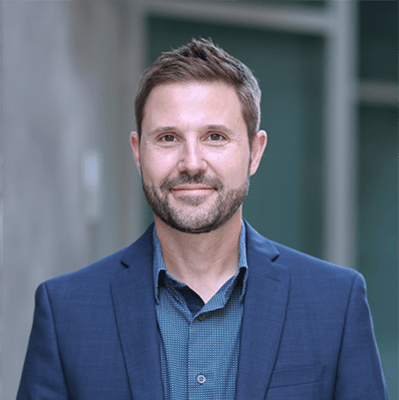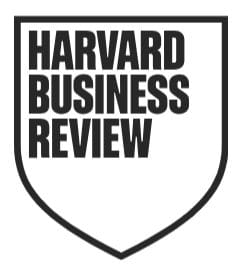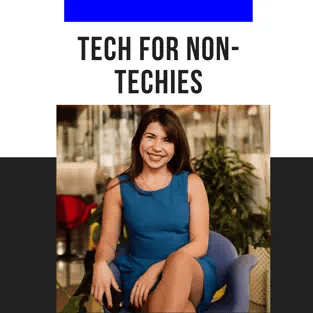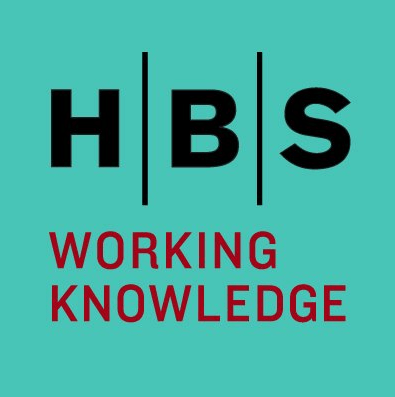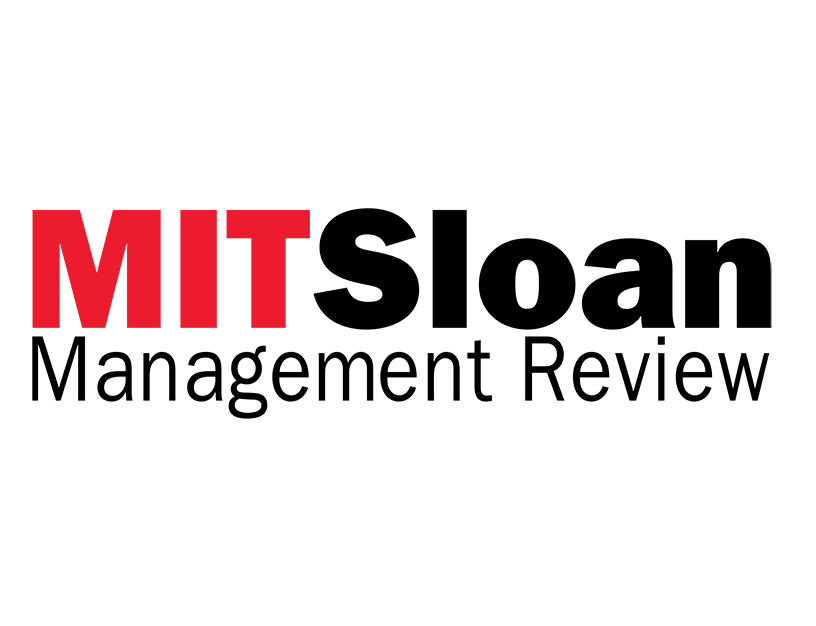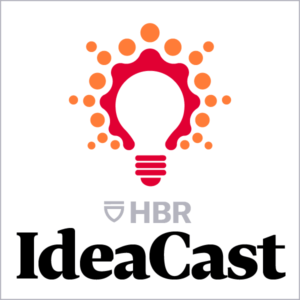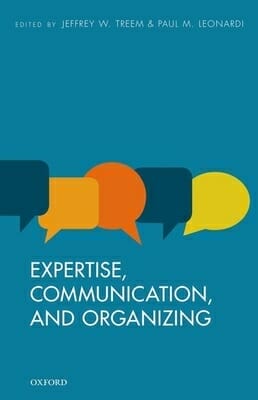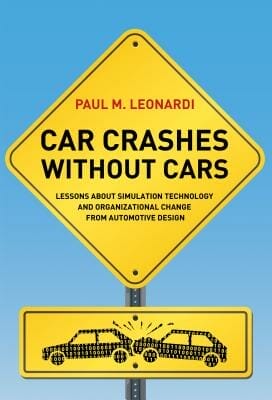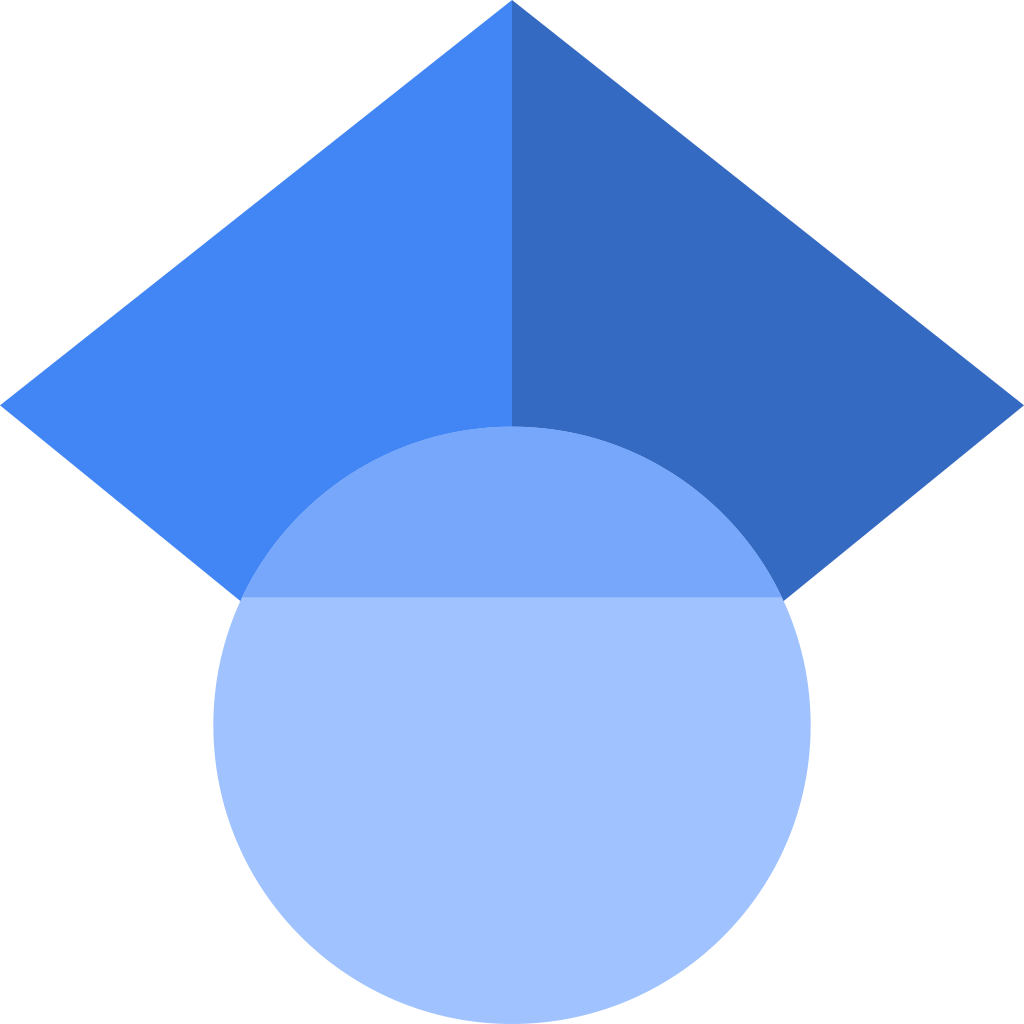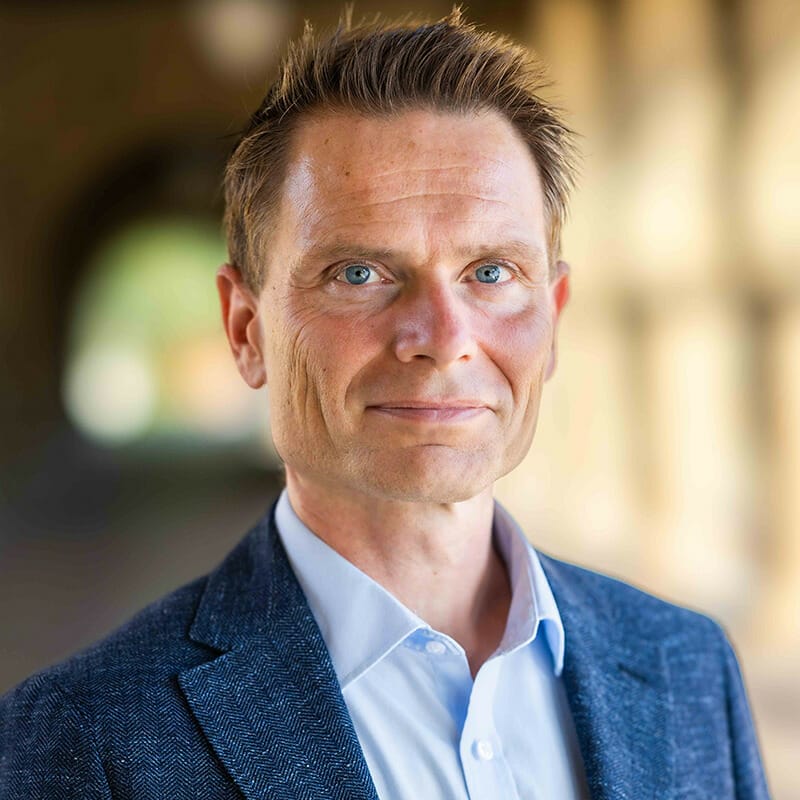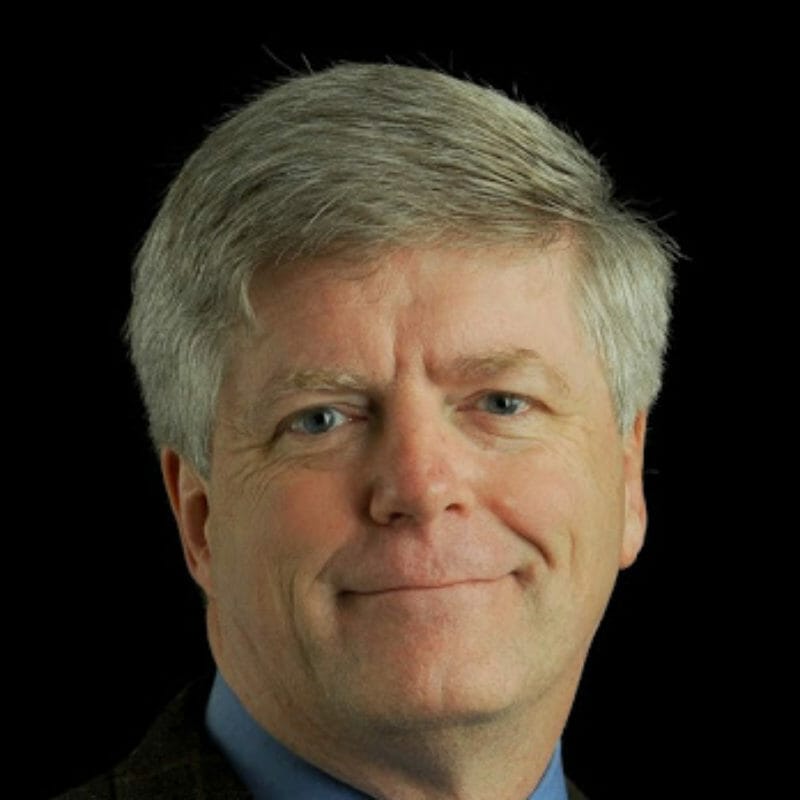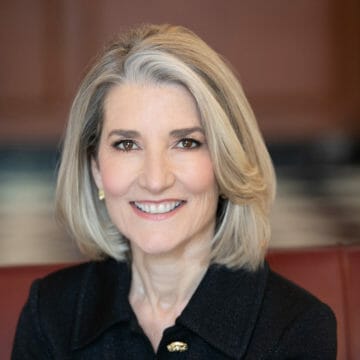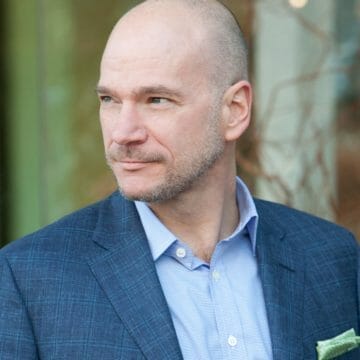Videos
Learn More About Paul Leonardi
Digital transformation has become much more than simply upgrading software and building a new skill set. In an age of rapidly evolving artificial intelligence (AI) systems, it’s now a required state of mind, says Paul Leonardi, Ph.D., award-winning University of California, Santa Barbara (UCSB) professor and Technology Management department chair.
With hybrid work here to stay and powerful AI algorithms like large language models (LLMs) among the constantly advancing technologies that are increasingly being deployed in business, Leonardi’s novel research insights are helping leaders understand the key questions they should be asking around new technologies. With a multidisciplinary expertise at the crossroads of technology, strategy and culture, he illustrates how vital it is for leaders to ensure that they and their workers effectively leverage emerging technology, such as generative AI (GenAI), to maximize team collaboration and organizational success while avoiding digital exhaustion.
An expert on organizational change leadership, Leonardi is the director of the Ph.D. program in Organization Studies in the UCSB College of Engineering. He speaks to top leaders eloquently and with clarity on both the technical and sociological implications of digital technology on company culture. His latest book, “The Digital Mindset: What It Really Takes to Thrive in the Age of Data, Algorithms, and AI” (Harvard Business Review Press, May 2022) – which won the 2024 Axiom Awards gold medal in the Emerging Trends/AI category – examines digital change in the context of evolving work practices. With vivid examples of how employees in organizations with a good digital presence feel empowered to broadcast their work, Leonardi demonstrates how leaders can develop a greater sense of curiosity and communicate more effectively across the organization.
“With a digital mindset,” Leonardi says, “you can ask the right questions about new technologies like generative AI, make smart decisions, and appreciate new possibilities for a digital future, making it feel much less daunting to embrace new digital tools.”
For years, Leonardi has consulted with top organizations across sectors on practical ways of implementing AI to empower employees and improve communication. With a focus on how both AI and social technologies change the way people work, his practical STEP framework helps leaders manage the introduction of AI into their organizations and build new avenues for value creation while simultaneously improving employee experiences.
Technology is Only Half the Equation; The Other Half is People
With the rise of GenAI and the rapid implementation of hybrid and fully remote work, new challenges to structuring teams that can still be innovative and effective have emerged. According to Leonardi, an important part of the process is relational analytics – predictive data that can be created based on the connections that exist between people. Understanding those relationships can help maximize innovation and efficiency within a team.
“The relationships employees have with one another –together with their individual attributes – can explain their workplace performance,” says Leonardi and his co-author in their acclaimed 2018 Harvard Business Review article. “Organizational leaders can look at structural signatures in their companies’ social networks and predict how creative or effective individual employees, teams, or the organization as a whole will be.”
By zeroing in on these relationships, leaders can empower their organization’s talent to support the successful and continued implementation of new technologies, with individual contributors learning how to better support their company’s strategic changes and advance their own careers.
The 30% Rule: What You Really Need to Know About Tech
By nurturing a digital mindset, communicating effectively within teams, and understanding what GenAI is and how it works, tech initiatives become powerful business strategies. But a workforce can feel intimidated by new technologies and become suspicious when they’re implemented. When it comes to easing the pressure some put on themselves to try to become overnight experts, Leonardi says it’s only necessary to have a 30% fluency in a handful of technical topics to develop an effective digital mindset.
“It’s easy to forget that technologies like LLMs are really just tools for problem solving,” he says. “We have to frame the implementation the right way to get employees excited and not fearful. Individuals need to have a general sense of how a technology works and the vocabulary to ask the right questions from there.”
Assuring both leaders and frontline workers, Leonardi says, “you don’t need to know everything, you just need to know enough to be dangerous.”
###
Paul Leonardi is the Duca Family Endowed Chair in Technology Management at the University of California Santa Barbara (UCSB) and serves as director of the Ph.D. program in Organization Studies in the College of Engineering. His research on digital transformation, remote work and social networks has led to four research-focused books and has been covered by academic publications including Harvard Business Review and MIT Sloan Management Review as well as mass media outlets such as The New York Times, The Wall Street Journal, Fortune, and more.
Bilingual in English and Spanish, Leonardi has won more than 30 awards for his research and teaching, including for his courses on digital transformation, managing innovation and the future of work. His writings have been recognized through multiple outstanding article awards from professional associations such as the Academy of Management, Strategic Management Society and the National Communication Association. In 2021, he was elected a fellow of the International Communication Association where he also received the Fredric Jablin Award for lifetime contributions to the study of organizational communication.
From 2014-2019, Leonardi served as the founding director of UCSB’s Master of Technology Management (MTM) program, a professional management program for technical leaders. Before joining UCSB, he worked at Northwestern University where he was jointly appointed across the School of Communication, the McCormick School of Engineering and the Kellogg School of Management. He received his Ph.D. in Management Science and Engineering from Stanford University.
Paul Leonardi is available to advise your organization via virtual and in-person consulting meetings, interactive workshops and customized keynotes through the exclusive representation of Stern Speakers & Advisors, a division of Stern Strategy Group®.
Helping Employees Succeed with Generative AI
Lots of recent news touts the productivity-amplifying and time-saving potential of generative AI tools like ChatGPT. But the reality is that most companies are not seeing such gains. In this eye-opening presentation, University of California, Santa Barbara Professor Paul Leonardi outlines the unique challenges that large language models (LLMs) present, including the fact that, by the very nature of their design, they’re constantly changing. Leonardi will explain his practical STEP framework, which he developed by working with top companies that have successfully implemented GenAI to empower employees. Audiences will leave with functional insights into how to create new avenues for value creation while simultaneously improving employee experiences. Leonardi will show you how to manage the introduction of AI into your organization so that those attractive productivity numbers turn from potential into reality.
The Digital Mindset: How to Thrive in the Age of Data, Algorithms, and AI
The digital revolution is here. Powerful technologies like large language models (LLMs) are changing how work gets done, how industries are structured, and how people work, behave and relate to each other. To thrive in a world driven by data and powered by AI algorithms, we must learn to see, think and act in new ways. We need to develop a digital mindset. Drawing from his book, “The Digital Mindset: What It Really Takes to Thrive in the Age of Data, Algorithms, and AI,” University of California, Santa Barbara Professor Paul Leonardi discusses the skills needed for a digital mindset and new ways of thinking that will enable leaders to be productive in the digital economy. With a digital mindset, employees can leverage a 30% fluency in a handful of technical topics to ask the right questions and make smart decisions about AI, leading to new possibilities for a digital future that can be appreciated. Leaders who adopt these approaches will be able to develop their organization’s talent to prepare their company for the successful and continued implementation of new technologies. Individual contributors will learn how to better support their company’s strategic changes and advance their own careers. Win-win.
Improve Remote and Hybrid Performance Through Better Collaboration
Technology has allowed us to work anywhere at any time. But the best ideas come when we collaborate with others. So how can a workforce collaborate when it’s also remote? What are the best ways to organize teams in a hybrid workplace while also ensuring everyone has the right tools to be productive? In this insightful talk, University of California, Santa Barbara Professor Paul Leonardi uses a combination of cutting-edge scientific evidence and examples of successful companies to outline steps that can be taken to build strong collaborations across multiple geographies, time zones and cultures, resulting in high performance and happy workers.
Preventing Digital Exhaustion
Many employees are overwhelmed and burned out. A big part of the problem is digital exhaustion. The pressures associated with being constantly connected and having to interact with people via multiple tools simultaneously is wearing people out. In this talk, University of California Santa Barbara Professor Paul Leonardi reveals the “exhaustion triad,” the key reasons the use of digital tools is wearing people out. Then, based on his extensive research and work with companies, he outlines practical and easy-to-accomplish ways to help employees reclaim enthusiasm for their work by reducing the negative impacts of digital exhaustion and findings what he calls “digital wellbeing.”

The Digital Mindset: What It Really Takes to Thrive in the Age of Data, Algorithms, and AI
(Harvard Business Review Press, May 2022)
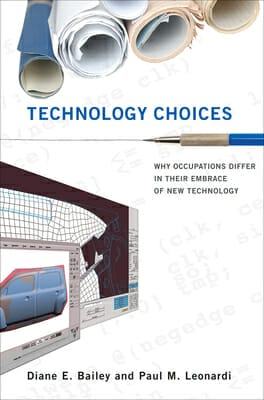
Technology Choices: Why Occupations Differ in Their Embrace of New Technology (Acting with Technology)
(The MIT Press, January 2015)
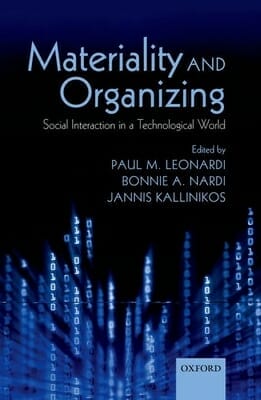
Materiality and Organizing: Social Interaction in a Technological World
(Oxford University Press, January 2013)
Nurture a Digital Mindset in an Era of AI and Remote Work
University of California, Santa Barbara professor Paul Leonardi is a top expert on leading successful digital transitions by developing a “digital mindset.” Co-author of “The Digital Mindset: What It Really Takes to Thrive in the Age of Data, Algorithms, and AI” (2022), he’s a trusted advisor to senior leaders looking to maximize knowledge, teamwork and efficiency among their workforce during the process of implementing powerful new technologies like artificial intelligence. Leonardi is available to discuss any or all of the following topics during one-on-one or small group advisory meetings. Each program can be customized to meet the needs and goals of your organization with the added option of meeting virtually or in person.
- Understanding the Key Questions to Ask Before Implementing AI
- Helping Employees Succeed with Generative AI
- Successfully Developing a Digital Mindset
- Leading Cultural Change to Prepare a Workforce for the Digital Future
- Using Relational Analytics to Maximize Team Communication and Efficiency
- How 30% Fluency in a Handful of Technical Topics is Enough to Succeed
- How to Use Data to Meet Your D&I Goals
- Improving Performance of Hybrid and Remote Teams
- Overcoming Digital Exhaustion
Praise for “The Digital Mindset”
"This comprehensive, plainspoken guide will be a godsend to leaders…"
"'The Digital Mindset' is an invaluable resource for anyone looking to become a better leader, future-proof their career, or simply gain a better understanding of the present and future of business."
"If you're worried that algorithms will replace our judgment, big data will make our little knowledge obsolete, or robots will steal our jobs, this book is for you. Paul Leonardi and Tsedal Neeley offer the practical insights you need to understand the next wave of digital change — and ride it smoothly."
"We've all heard it a million times: You need to be more digital. Finally, here's a book that ascribes real meaning to the buzzword. With clarity and a surprising level of detail, Leonardi and Neeley prepare you for the digital future."
"'The Digital Mindset' provides critical and actionable insights that make it possible for everyone — from the executive team to individual contributors—to help their company succeed in the digital era. Today's CEOs must make sure their entire workforce has a digital mindset. This book is the place to start."
"If we continue to consider the digital age as a purely technological revolution, we will miss the most significant economic, political, and behavioral disruption of our societies since the Industrial Revolution. 'The Digital Mindset' offers the 360-degree understanding necessary to seize this moment."
"Down-to-earth and practical, this book makes digital transformation achievable to anyone."
"Leonardi and Neeley have produced the indispensable, foundational playbook for leaders looking to thrive in the digital age."
Praise for “Technology Choices”
"Chalk one up for people controlling technology rather than the reverse! Bailey and Leonardi's deep analysis shows that occupational norms shape how the same computer technologies can be used in different ways to design products and get work done productively. Let's hope their findings inspire other professionals and occupational gatekeepers to put technologies to work in service of economic, social, and environmental goals important to us all."
Praise for “Car Crashes without Cars”
"Readers of this book will think differently when they get behind the wheel of a new car. With deftness and insight, Paul Leonardi illuminates how automotive technology embodies both the choices of programmers and the routines of managers. These contrasting commitments are reconciled, more or less, in the cars we drive. This is an inspired contribution to the study of work and technology."
